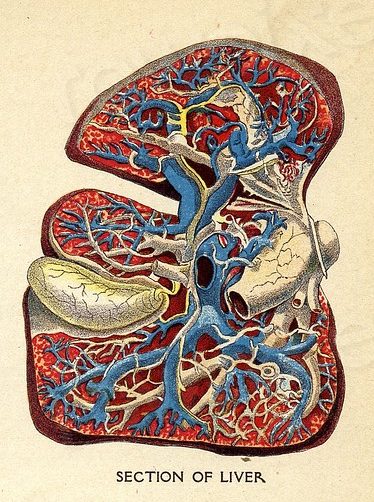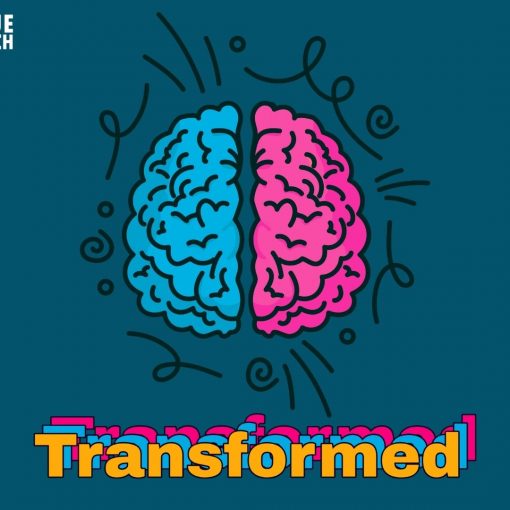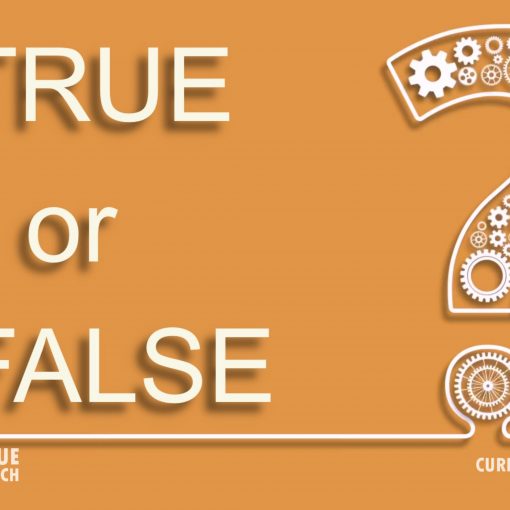Generosity In Giving
(Exodus 36:1-7)
November 26, 2023
After suffering years with a failing liver, Brenda Jones learned that she would need a liver transplant to survive.

Though she was 69-years old, she wanted to live many more years.
And by all accounts, with a healthy liver, she could.
So, the doctors placed her on a liver transplant list hoping a donor would eventually appear.
Brenda waited for a full year before she received the call from her doctor that a match had been found.
Thankful that a donor liver had been found, Brenda planned her transplant surgery with great anticipation.
But before the procedure was performed, she received another call as well.
The second call was also from her transplant surgeon at Baylor.
He told Brenda about a 23-year-old woman, Abigail Flores, who had been flown into the hospital that day.
Abigail needed a liver transplant as well, and without it, she would die within 24 hours.
And most important, the liver that was a donor match for Brenda was also a match for Abigail.
The choice was up to Brenda, but she did not hesitate.
She gave permission for the surgical team to give the liver to Abigail, and as a result, Abigail survived.
It was one of the most profound acts of generosity witnessed, and Brenda affected numerous lives in the process.
And as luck would have it, Brenda was notified four days later that another liver for her had been found.
In a May 2015 article in The Atlantic entitled, “The Man Who Couldn’t Stop Giving,” Sam Kean told the story of a man in Brazil who went from being stingy and miserly to being excessively generous.
In fact, many believed he became too generous!
What caused the change?
Brain damage from a stroke, apparently.
Here is what the article, in part, says:
In the early 1990s, a quiet man named João quit his job running the human-resources department of an insurance company in Rio de Janeiro and began selling french fries from a street cart.
The fries quickly proved popular, in part because they were delicious but what was even more enticing, João often served them up for free.
All you had to do was ask, and he’d scoop some into a box, no charge.
What money he did take in, he frequently gave away to children begging in the street or used to buy them sweets.
Day after day, he came home to his wife and son without a single cent in his pocket.
In his previous life, João had been stern and serious, prone to squirreling money away.
But after suffering a health crisis in 1990, at age 49, he wanted to live differently.
“I saw death from close up,” he would often say.
“Now I want to be in high spirits.”
And nothing made him happier than giving.
To those who didn’t know him well, he must have seemed like the embodiment of selflessness—the Saint Francis of Rio de Janeiro.
We’ve long known that there’s a clear, consistent link between generosity and happiness: surveys done around the world, of many different societies, have found that giving produces high levels of satisfaction and well-being in the givers.
What scientists didn’t have a good grasp of until recently were the neuroscientific roots of this feeling—why we get a boost from giving.
Years ago, Jordan Grafman, a cognitive neuroscientist at Northwestern University Medical School, investigated this link by putting volunteers in an fMRI machine and asking them to decide which charities they would like to make a donation to.
Grafman and his team gathered data on which brain systems were most active during the process.
They had expected to see heightened activity in people’s frontal lobes, a part of the brain that helps with social reasoning and with weighing different courses of action—just the sorts of talents needed for this task.
And the frontal lobes did, in fact, come to life on the fMRI scans.
But Grafman was surprised to see the brain’s pleasure and reward circuits rev into high gear as well.
“Our first impression,” Grafman says, “was that we might see some activation [in those circuits], just because usually when people give, they feel a little bit better.
But we had no idea about the degree.”
Specifically, his team saw the brain’s mesolimbic system light up.
This system forms a key part of the brain’s pleasure circuits, an archipelago of structures that stimulate the production of the chemical messenger dopamine, which makes us feel good.
Neuroscientists usually associate activity in these circuits with hedonistic delights like food and sex.
Grafman determined that giving money away excited these circuits even more than receiving money did.
Maybe this explains why João’s doctor calls him “Pathologically generous.”
Now there is a phrase!
I am intrigued by this neuroscientific examination of generosity.
It also makes me think that neuroscientists would likely also diagnose Israel as having had a corporate pathology of generosity on the basis of Exodus 36.
In this chapter, the people of Israel literally give too much and have to be told to stop!
Was it because their frontal lobes were not doing what they should?
Or was it because they had had an overwhelming vision of the goodness and glory of God?
Exodus 36:1-7
So Bezalel, Oholiab and every skilled person to whom the Lord has given skill and ability to know how to carry out all the work of constructing the sanctuary are to do the work just as the Lord has commanded.”
2 Then Moses summoned Bezalel and Oholiab and every skilled person to whom the Lord had given ability and who was willing to come and do the work. 3 They received from Moses all the offerings the Israelites had brought to carry out the work of constructing the sanctuary. And the people continued to bring freewill offerings morning after morning. 4 So all the skilled workers who were doing all the work on the sanctuary left what they were doing 5 and said to Moses, “The people are bringing more than enough for doing the work the Lord commanded to be done.”
6 Then Moses gave an order and they sent this word throughout the camp: “No man or woman is to make anything else as an offering for the sanctuary.” And so the people were restrained from bringing more, 7 because what they already had was more than enough to do all the work.
A HEART OF GRATITUDE TO GOD GIVES GENEROUSLY
Now, there are reasons that I say this.
The first is that we have a different understanding as Christ followers, it doesn’t always jive with the rest of the world.
First we understand that:
ALL GOOD THINGS WE HAVE ARE TRULY GIFTS FROM GOD (1-2)
As we approach Israel’s astonishing generosity, we first note the divine equipping of Bezalel and Oholiab, the leaders of the tabernacle construction project.
Notice the strong emphasis on God’s enabling of their great work. God put “skill and ability to know how to carry out all the work of constructing the sanctuary” within the workers.
Verse 2 tells us that God put skill in the “minds” of the workers.
And the stirring of heart mentioned in verse 2 must also be seen as a divine enabling.
I believe that verses 1 and 2 are utterly crucial to our understanding of verses 3-7.
I believe that this repeated emphasis on God’s enabling power and God’s divine gifts, both in Exodus 36:1-2 and in Exodus 35:30-35, creates the framework in which the background against which Israel’s generosity is to be understood.
Simply put, I believe that Israel finally came to understand that all good things we have are truly gifts from God!
Then they simply acted accordingly.
We think of our external possessions as gifts from God when we think rightly.
But so too are our talents, our skills, our intelligence, our abilities, and, in short, everything we have!
Everything we have is a gift!
Life is a gift!
Like Brenda Jones and Abigail Flores and their liver transplants…
Why does this form the framework for understanding Israel’s generosity?
It is because only when all we have is seen as a gift from God are we truly able to give all that we have as a gift to God.
Israel, in other words, caught a glimpse of a transformative truth: God was not only with them, He was blessing them in every single way even above and beyond what they deserved.
They were flabbergasted by the staggering kindness and mercy and generosity of God!
They were overwhelmed by His grace and His provisions!
And their response was…to give!
The significance of this for us rests in the fact that we too must catch this glimpse of the beautiful generosity of God if we are going to live lives of amazing kindness and generosity.
Bezalel and Oholiab and the whole crew of workmen are therefore representative of us all.
What good we experience and what good fruits we see coming from our labors are all gifts as are our abilities to labor fruitfully in the first place.
Ephesians 3:20-21, Now to him who is able to do immeasurably more than all we ask or imagine, according to his power that is at work within us, 21 to him be glory in the church and in Christ Jesus throughout all generations, for ever and ever! Amen.
Open your eyes to the staggering generosity of God and thank Him for His great provision!
Second, we understand that:
JOYFUL GIVING IS THE MOST NATURAL THING IN THE WORLD (3-7)
What happens when God’s people get a glimpse of God’s loving-kindness?
They respond in like turn and give back to Him.
Here we see one of the most beautiful pictures in all of scripture.
The people are moved to give.
In fact, they give so much that they give too much and are forced to stop!
Notice the offerings are “freewill” offerings.
They are not guilted into doing this.
Guilt does not produce this kind of sacrifice.
Only gratitude does.
The people who have received a great gift are therefore willing to give all that they have.
So, what about the church?
The church is a people literally defined by the gift they have been given: the gift of the Holy Spirit.
In John 4, Jesus tells the woman at the well that He is a gift from God.
John 4:10, Jesus answered her, “If you knew the gift of God and who it is that asks you for a drink, you would have asked him and he would have given you living water.”
In Romans 3:23-24 Paul says, for all have sinned and fall short of the glory of God, 24 and all are justified freely by his grace through the redemption that came by Christ Jesus.
Three chapters later, in Romans 6:23, Paul said, For the wages of sin is death, but the gift of God is eternal life in Christ Jesus our Lord.
In Romans 5:15-17 Paul speaks of salvation in Jesus as a great gift. 15 But the gift is not like the trespass. For if the many died by the trespass of the one man, how much more did God’s grace and the gift that came by the grace of the one man, Jesus Christ, overflow to the many! 16 Nor can the gift of God be compared with the result of one man’s sin: The judgment followed one sin and brought condemnation, but the gift followed many trespasses and brought justification. 17 For if, by the trespass of the one man, death reigned through that one man, how much more will those who receive God’s abundant provision of grace and of the gift of righteousness reign in life through the one man, Jesus Christ!
Jesus said in Luke 11:13, If you then, though you are evil, know how to give good gifts to your children, how much more will your Father in heaven give the Holy Spirit to those who ask him!”
On and on it goes.
The New Testament (not to mention the Old, for which this point is also true!) is filled with references to God giving us gifts, all of them connected to the greatest gift of all: Jesus Christ!
If, then, the people of God in Exodus responded to the gift-giving, loving, and life-enabling heart of God with a generosity that literally had to be stopped because it was overflowing, how should we who have been saved by the blood of the gift that is Jesus Christ respond in our giving?
Only those who know that they have been given a great gift are willing to give great gifts.
This is not a matter of brain damage or dysfunctional frontal lobes.
This is not a pathology.
This is the overflow of the human heart.
For the church, the radical gift of Jesus must translate into the radical giving of Jesus’ people, the Church.
And, in truth, whenever Jesus has been rightly seen and grasped, this is what has happened: people have given all that they have and are.
APPLICATION (10)
The application of this to our lives should be pretty clear.
Salvation is the motivation for our generosity as well.
Not just financially, but if you have never been generous with your money and you are a Christian, the first thing you need to do in your life is start tithing.
A tithe is giving the first 10 percent of your income to the church for the work of the church, then you can give generous offerings, overflowing. Explain this better.
But we must be just like the willing workers, generous with our skills to build the kingdom.
Last week was an awesome testimony to the generosity of the people of MACC as we had more volunteers than ever before show up and help with the Thanksgiving distribution and we hope to have that many show up and help with our Christmas Eve dinners, but let’s not stop there, we need people serving in all kinds of ministry areas, like greeting people at our doors, driving the van, serving on our coffee ministry, funeral meals, you name it, we need it.
I want us today to think of our generosity in terms of service – not just our money, but all our resources, all our gifts/talents, all we are and all we have at our disposal that we are using all of us to build the kingdom of God.
When you accept Jesus as your Lord and Savior, you are expected to serve.
Here at MACC we say it like this:
We are crafted to serve one another.
We also say:
We are commanded to be whole-life stewards.
But not everyone who was saved came forward then and not everyone here serves either.
In fact, if you were a fly on the wall, you would see there is a large group of folks who do most things.
As a church we are probably way above average when it comes to people serving, but average is not good enough.
Every person needs to find an area to serve in.
The church is not a show for spectators, it’s a place for people to grow in their relationship with God and with each other and I don’t believe there is any better way to grow in relationship with others than to serve with them, to get your hands dirty with them.
When we built this church building, which we are not done, we didn’t have to tell people to stop giving, though there are some of you here this morning who could give to the point that everything could be finished, but when we built this and we worked together, I believe we grew closer as a church family than at any other time.
Listen folks, everything we have is ours, it’s a gift from God, but it is ours, He wants us to be generous with our stuff just like He is generous with us.
Love should be our motivation for serving, loving God and loving others.
but I want you to understand clearly what happens when you serve.
You see many of us think of serving as a sacrifice…and it is, but God blesses our obedience to serve.
And his blessings more than make up for any sacrifice we might make.
Serving allows us to discover and develop our gifts.
Speaking of which, Bruce Western, will be leading our Education Class, Blue Print for Life beginning January 7, 2024 at 9am.
Man I want to encourage anyone who hasn’t taken that class to sign up and take it.
1 Corinthians 12 compares the church to a human body.
Each part shaped uniquely for a unique purpose.
If you never serve, you may never discover the purpose for your shape.
What a blessing it is to know why you are here…your purpose
Sometimes God challenges us to take on something that may seem huge.
God has laid on one of our members hearts, Kim Martin, to start up ALPHA.

ALPHA is an 11 week outreach ministry for those seeking, confused, or new to the faith.
If you are interested in serving in this ministry there is a training date for January 2.
Alpha will begin January 9 at 6pm.
We need people to help with meals, decorating, greeters, prayer, set up and tear down.
If you are interested in learning more about serving or attending Alpha see Kim Martin at our Adult Ministry table at the end of our service.
Serving allows us to experience the joy and peace that comes from obedience.
1 Peter 4:10-11, 10 Each of you should use whatever gift you have received to serve others, as faithful stewards of God’s grace in its various forms. 11 If anyone speaks, they should do so as one who speaks the very words of God. If anyone serves, they should do so with the strength God provides, so that in all things God may be praised through Jesus Christ. To him be the glory and the power for ever and ever. Amen.
Serving is a form of worship, a way to express gratitude for what Jesus has done for us, and to share the love and grace we’ve been given.
Serving helps us to be more like Jesus.
You see, when we shift our focus off of ourselves onto others through serving, we begin to see others as Jesus sees them.
Becoming more like Jesus is our goal right?
That happens when we serve.
Mark 10:45, For even the Son of Man did not come to be served, but to serve, and to give his life as a ransom for many.”
Are we ready to give of ourselves generously like Jesus?
- Financially
- Time
- Abilities
- Resources
- Maybe our lives
How much should you give to God?
Look at the cross and you tell me.

Our God is a giving God.
Jesus is His gift.




